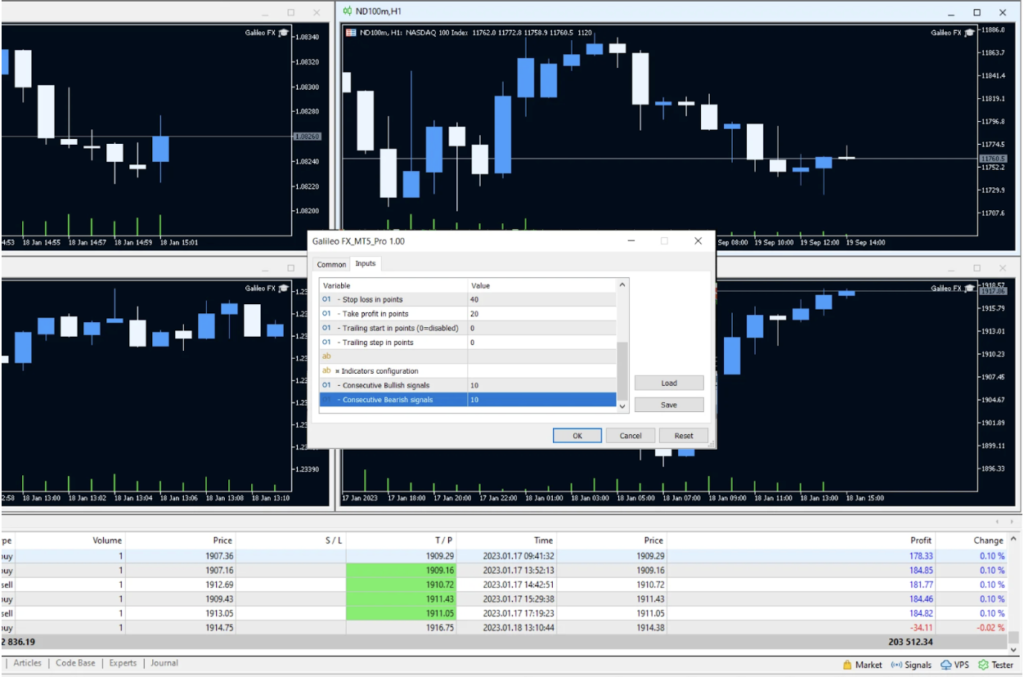In the era of digital transformation, healthcare organizations are faced with the challenge of managing and analyzing vast amounts of patient data while ensuring its security and integrity. Blockchain technology, with its decentralized and immutable nature, has emerged as a promising solution for enhancing health data analytics. This article explores the concept of blockchain technology-based health data analytics, its advantages, challenges, use cases, and future implications.
Understanding Blockchain Technology:
Blockchain is a distributed ledger technology that allows multiple parties to maintain a shared database without the need for intermediaries. In the context of health data analytics, blockchain provides a transparent and tamper-proof platform for storing and sharing sensitive patient information. It utilizes cryptographic techniques to ensure the authenticity and integrity of data, making it highly secure.
The Importance of Health Data Analytics:
Health data analytics plays a vital role in modern healthcare systems, offering valuable insights and opportunities for improving patient care, research, and decision-making. By harnessing the power of advanced analytics techniques, healthcare providers can leverage the abundance of data available to drive meaningful outcomes and enhance overall healthcare delivery.
Here are some key reasons highlighting the importance of health data analytics:
- Enhanced Patient Outcomes: Health data analytics enables healthcare professionals to gain a deeper understanding of patient populations and individual patients. By analyzing large volumes of data, including electronic health records (EHRs), medical imaging, genomics, wearable devices, and patient-reported data, healthcare providers can identify patterns, trends, and correlations. These insights can help in making more accurate diagnoses, tailoring treatment plans, predicting disease progression, and ultimately improving patient outcomes.
- Evidence-Based Decision-Making: With access to vast amounts of data, healthcare providers can make informed decisions based on evidence and data-driven insights. Health data analytics allows for the evaluation of treatment outcomes, effectiveness of interventions, and identification of best practices. By leveraging these insights, healthcare organizations can develop evidence-based guidelines, protocols, and policies to optimize patient care and resource allocation.
- Population Health Management: Health data analytics facilitates population health management by providing a holistic view of a specific group of patients or the entire population. By analyzing demographic data, socioeconomic factors, health behaviors, and clinical information, healthcare providers can identify high-risk populations, design targeted interventions, and allocate resources efficiently. This proactive approach to healthcare can lead to disease prevention, early detection, and improved population health outcomes.
- Research and Innovation: Health data analytics fuels medical research and innovation by providing researchers with access to comprehensive and diverse datasets. Researchers can leverage these datasets to identify new treatment approaches, develop predictive models, and gain insights into disease mechanisms. Additionally, aggregated and anonymized health data can be used for population-level studies, clinical trials, and comparative effectiveness research, enabling scientific advancements and the discovery of new therapies.
- Operational Efficiency and Cost Savings: Health data analytics helps healthcare organizations optimize their operations and resource utilization. By analyzing data related to patient flow, hospital admissions, length of stay, and resource allocation, healthcare providers can identify bottlenecks, streamline processes, and reduce costs. Moreover, predictive analytics can aid in forecasting patient demand, optimizing staffing levels, and preventing hospital readmissions, leading to improved efficiency and cost savings.
- Quality Improvement and Patient Safety: Health data analytics plays a crucial role in quality improvement initiatives and patient safety. By analyzing data on adverse events, medication errors, patient feedback, and clinical outcomes, healthcare providers can identify areas for improvement, implement interventions, and monitor the impact of quality improvement initiatives. This iterative process helps in ensuring patient safety, reducing medical errors, and enhancing the overall quality of care.
Advantages of Using Blockchain for Health Data Analytics:
- Enhanced Security and Privacy: Blockchain technology decentralized architecture eliminates the need for a central authority, reducing the risk of data breaches and unauthorized access. Each transaction or data entry is encrypted, time-stamped, and linked to previous entries, ensuring data immutability and auditability.
- Improved Data Integrity: Blockchain’s consensus mechanism ensures that all participants agree on the validity of transactions or data updates. This enhances data integrity by eliminating the possibility of fraudulent or unauthorized changes to health records, ensuring the accuracy and trustworthiness of the information.
- Increased Interoperability: Traditional healthcare systems often suffer from interoperability challenges due to incompatible data formats and disparate systems. Blockchain technology enables seamless data exchange and interoperability by providing a standardized and secure framework for sharing health data across different organizations and systems.
Challenges in Implementing Blockchain-Based Health Data Analytics:

- Scalability Issues: Blockchain technology networks currently face scalability challenges in handling a large volume of transactions and data. As the number of participants and data grows, blockchain networks must address scalability concerns to ensure real-time data processing and analysis.
- Regulatory and Legal Considerations: The use of blockchain technology in healthcare requires compliance with various regulatory frameworks, such as data protection laws and patient consent requirements. Balancing the benefits of blockchain with legal and ethical considerations poses challenges for widespread adoption.
- Data Standardization: Healthcare data is often collected in different formats and lacks standardization, making it difficult to integrate and analyze. Blockchain-based health data analytics would require efforts to standardize data formats and ensure interoperability across different healthcare systems and providers.
Use Cases of Blockchain-Based Health Data Analytics:
- Patient Data Management and Consent: Blockchain technology can enable patients to have control over their health data by providing them with a secure and transparent platform to manage and share their information with healthcare providers. Patients can grant consent for specific data access, ensuring privacy while facilitating effective healthcare delivery.
- Clinical Research and Trials: Blockchain can streamline the process of data collection and consent management for clinical research and trials. It can provide a secure and auditable platform for researchers to access anonymized patient data, accelerating medical research and improving collaboration among stakeholders.
- Supply Chain Management: Blockchain’s transparent and traceable nature can help improve supply chain management in the healthcare industry. By tracking the movement of drugs, medical devices, and vaccines, blockchain can ensure authenticity, reduce counterfeiting, and enhance patient safety.
Future Implications and Potential Benefits:
The future implications of blockchain technology-based health data analytics are significant and hold immense potential for revolutionizing healthcare systems worldwide. As technology continues to advance and evolve, the adoption of blockchain in health data analytics is expected to bring about several benefits and transform the way healthcare is delivered and managed. Here are some of the future implications and potential benefits:
- Personalized Medicine: Blockchain technology-based health data analytics can enable personalized medicine by providing a secure and transparent platform for managing and analyzing patient data. With access to comprehensive and up-to-date health records, healthcare providers can tailor treatments and interventions to individual patients, taking into account their unique medical history, genetic makeup, lifestyle factors, and treatment responses. This personalized approach can lead to more precise diagnoses, targeted therapies, and improved patient outcomes.
- Improved Interoperability: Interoperability remains a significant challenge in healthcare, with data often siloed across different systems and organizations. Blockchain technology can address this challenge by providing a standardized and secure framework for data exchange and interoperability. By leveraging blockchain’s decentralized nature and cryptographic techniques, healthcare providers can securely share and access patient data across disparate systems, ensuring seamless continuity of care, reducing duplication of tests, and facilitating effective care coordination.
- Enhanced Data Security and Privacy: One of the primary advantages of blockchain is its inherent security and privacy features. As healthcare data becomes increasingly digital and vulnerable to cyber threats, blockchain-based health data analytics can provide robust security measures. The decentralized nature of blockchain ensures that data is not stored in a single central repository, reducing the risk of data breaches and unauthorized access. Moreover, blockchain’s cryptographic algorithms and immutability make it highly resistant to tampering, ensuring the integrity and authenticity of health data.
- Accelerated Research and Development: Blockchain technology-based health data analytics can greatly accelerate medical research and development. By providing researchers with access to large-scale, diverse, and anonymized datasets, blockchain can facilitate the discovery of new treatments, drug development, and clinical trials. Researchers can leverage the wealth of data available on the blockchain technology to identify patterns, trends, and potential correlations, leading to scientific advancements and the development of innovative therapies.
- Efficient Supply Chain Management: The healthcare supply chain is complex, involving the movement of drugs, medical devices, and vaccines. Blockchain technology can bring transparency, traceability, and accountability to supply chain management. By leveraging blockchain’s immutable and decentralized ledger, stakeholders can track and verify the authenticity, origin, and movement of healthcare products, reducing the risk of counterfeiting, ensuring product quality, and enhancing patient safety.
Conclusion:
Blockchain technology-based health data analytics has the potential to transform healthcare by providing secure, transparent, and interoperable systems for managing and analyzing patient data. It offers enhanced security and privacy, improved data integrity, and increased interoperability. Despite challenges such as scalability, regulatory compliance, and data standardization, the future implications of blockchain in healthcare are promising.
FAQs:
What is blockchain technology-based health data analytics?
Blockchain-based health data analytics refers to the use of blockchain technology to securely store, manage, and analyze healthcare-related data, enabling improved patient outcomes and healthcare delivery.
How does blockchain technology enhance security and privacy in health data analytics?
Blockchain’s decentralized and cryptographic nature ensures data security and privacy by eliminating the need for a central authority and encrypting data transactions.
What are the challenges in implementing blockchain-based health data analytics?
Challenges include scalability issues, regulatory compliance, and data standardization across different healthcare systems and providers.
How can blockchain improve supply chain management in healthcare?
Blockchain technology can track the movement of drugs, medical devices, and vaccines, ensuring authenticity, reducing counterfeiting, and enhancing patient safety.
What are the potential benefits of blockchain-based health data analytics?
Potential benefits include personalized medicine, improved patient outcomes, accelerated research and development, and enhanced collaboration among healthcare stakeholders.










